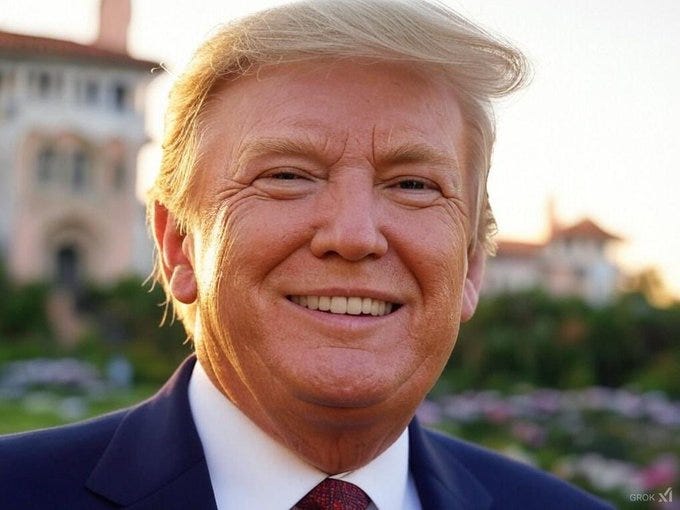President Trump Requests SCOTUS Immediate Stay
President Trump's lawyer requests an immediate interlocutory appeal emergency stay at the Supreme Court of the United States.
SCOTUS Blog reports President-elect Donald Trump came to the Supreme Court on Wednesday morning, asking the justices to halt the criminal sentencing scheduled for Friday morning in his New York hush money case. In a 40-page filing signed by John Sauer, Trump’s intended nominee for solicitor general, Trump urged the court to put the proceedings on hold to allow him to appeal. “Forcing President Trump to prepare for a criminal sentencing in a felony case while he is preparing to lead the free world as President of the United States in less than two weeks imposes an intolerable, unconstitutional burden on him that undermines these vital national interests,” Trump wrote.
Previously this week, President Trump’s lawyer requested an interlocutory appeal and and emergency stay at the New York State Appellate Division which was denied. In the emergency appeal motion the lawyers requested an immediate interlocutory appeal based on the Supremacy Clause and Presidential Immunity stating “as a matter of federal constitutional law, which is binding on the New York courts under the Supremacy Clause.”
Notably, moreover, the stay President Trump seeks is also fully consistent with ordinary New York law and practice. In fact, the "common practice" of granting such stays, id., applies in New York criminal cases as well. New York appellate courts routinely stay criminal proceedings in the trial court pending the resolution of interlocutory appellate proceedings under New York's Article the procedure employed by President Trump here-that challenge the authority of the trial court to proceed. It is, therefore, wrong, astonishing and improper that the New courts have denied to President Trump the basic procedural protection that it routinely grants to other criminal defendants. The Court should immediately order a stay of pending criminal proceedings in the Supreme Court of New York County, New York, pending the final resolution of President Trump's interlocutory appeal raising questions of Presidential immunity, including in this Court if necessary. The Court should also enter, if necessary, a temporary administrative stay while it considers this stay application, New York Appeal
Supreme Court Emergency Stay Request
In a 40-page filing to the United States Supreme Court signed by John Sauer states “The standards for granting a stay of mandate pending disposition of a petition for certiorari are well established.” White v. Florida, 458 U.S. 1301, 1302 (1982) (Powell, J., in chambers). “[1] There must be a reasonable probability that four members of the Court would consider the underlying issue sufficiently meritorious for the grant of certiorari or the notation of probable jurisdiction; [2] there must be a significant possibility of reversal of the lower court’s decision; and [3] there must be a likelihood that irreparable harm will result if that decision is not stayed.”
The question in front of the Court also requests review of Presidential Immunity evidence used in the Manhattan 34 count Alvin Braggs trial. During trial, the trial court admitted documentary evidence reflecting official Presidential actions, including the 2017 Office of Government Ethics (OGE) form signed by President Trump regarding compliance of the President with applicable laws and regulations. The trial court, wrongly and rather bafflingly, found that the evidence of President Trump’s statements on the OGE forms, which were required to be completed, and were completed, in his official capacity as President, were “not deemed official conduct.”All parties agree that the sitting President of the United States enjoys absolute Presidential immunity from any criminal investigation or prosecution, state or federal. “In the criminal context, . . . ‘the separation of powers precludes the criminal prosecution of a sitting President.’”
In so finding, the trial court acknowledged that “the President is . . . required to complete [the] OGE Form” by virtue of his official position, and conceded that “Defendant’s statement that he ‘was required to make the disclosures on the Form in his official capacity as President’ may be true.” Yet the trial court reasoned that, since other federal employees were required to complete OGE forms in their own official capacities, the President completing the form in his official capacity did not render the communications made therein “within the outer perimeter of his authority.” This reasoning is plainly wrong.
In the Presidential Transition Act, Congress emphasized the close relationship and continuity between the President’s transitional duties and his official duties upon inauguration: “The national interest requires that such transitions in the office of President be accomplished so as to assure continuity in the faithful execution of the laws and in the conduct of the affairs of the Federal Government, both domestic and foreign.”
All parties agree that the sitting President of the United States enjoys absolute Presidential immunity from any criminal investigation or prosecution, state or federal. “In the criminal context, . . . ‘the separation of powers precludes the criminal prosecution of a sitting President.’”
First, “the actual imposition of a criminal sentence of incarceration . . . would make it physically impossible for the President to carry out his duties.” Moreover, any criminal sentencing, and even the distraction of ongoing criminal proceedings, disrupts and will continue to disrupt the enormously burdensome and sensitive tasks of the Presidential transition.
Conclusion
This Court should immediately order a stay of pending criminal proceedings in the Supreme Court of New York County, New York, pending the final resolution of President Trump’s interlocutory appeal raising questions of Presidential immunity, including in this Court if necessary. The Court should also enter, if necessary, a temporary administrative stay while it considers this stay application.
Justice Sonia Sotomayor, who handles emergency appeals from New York, directed the prosecutors to respond to Trump’s request by Thursday at 10 a.m.





